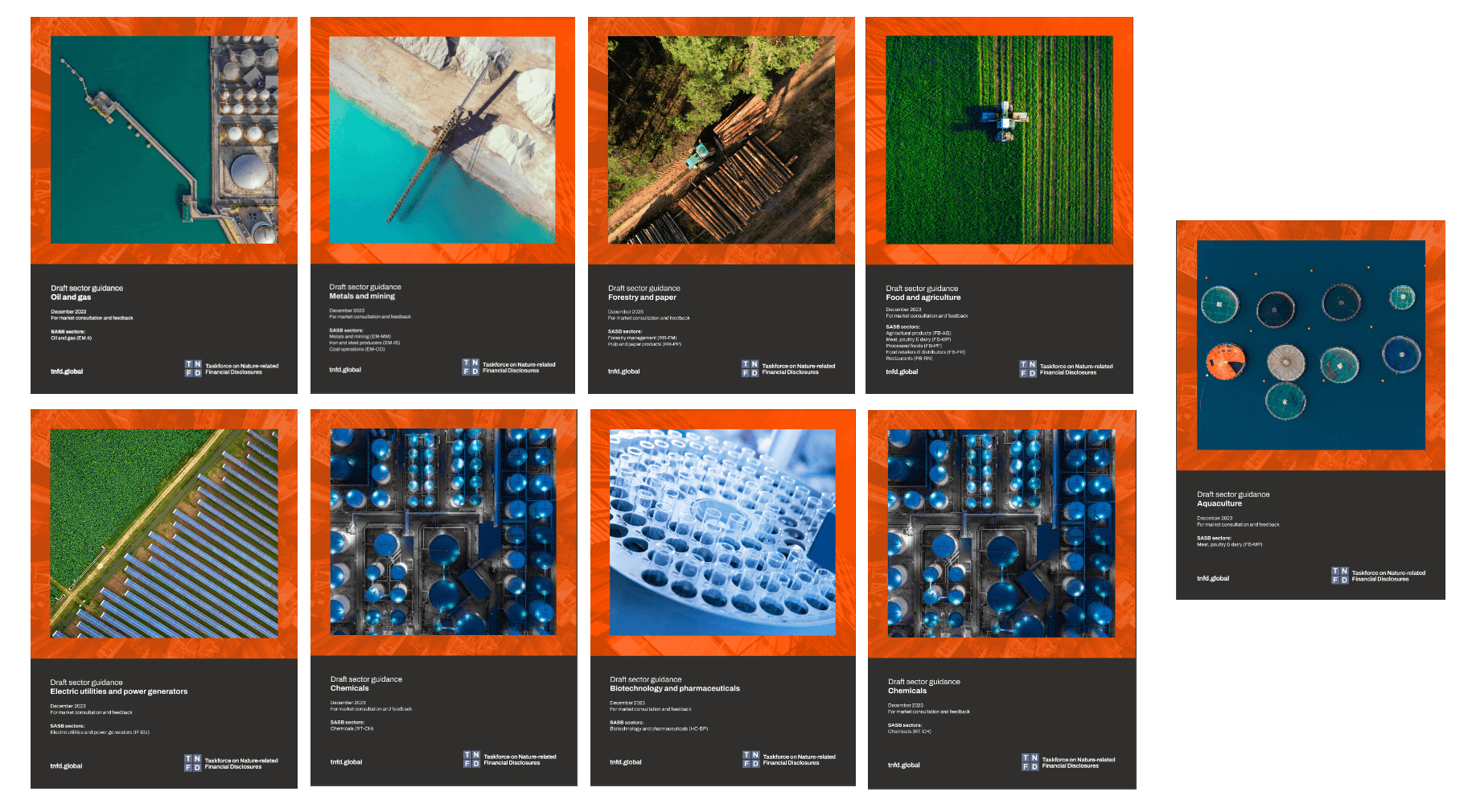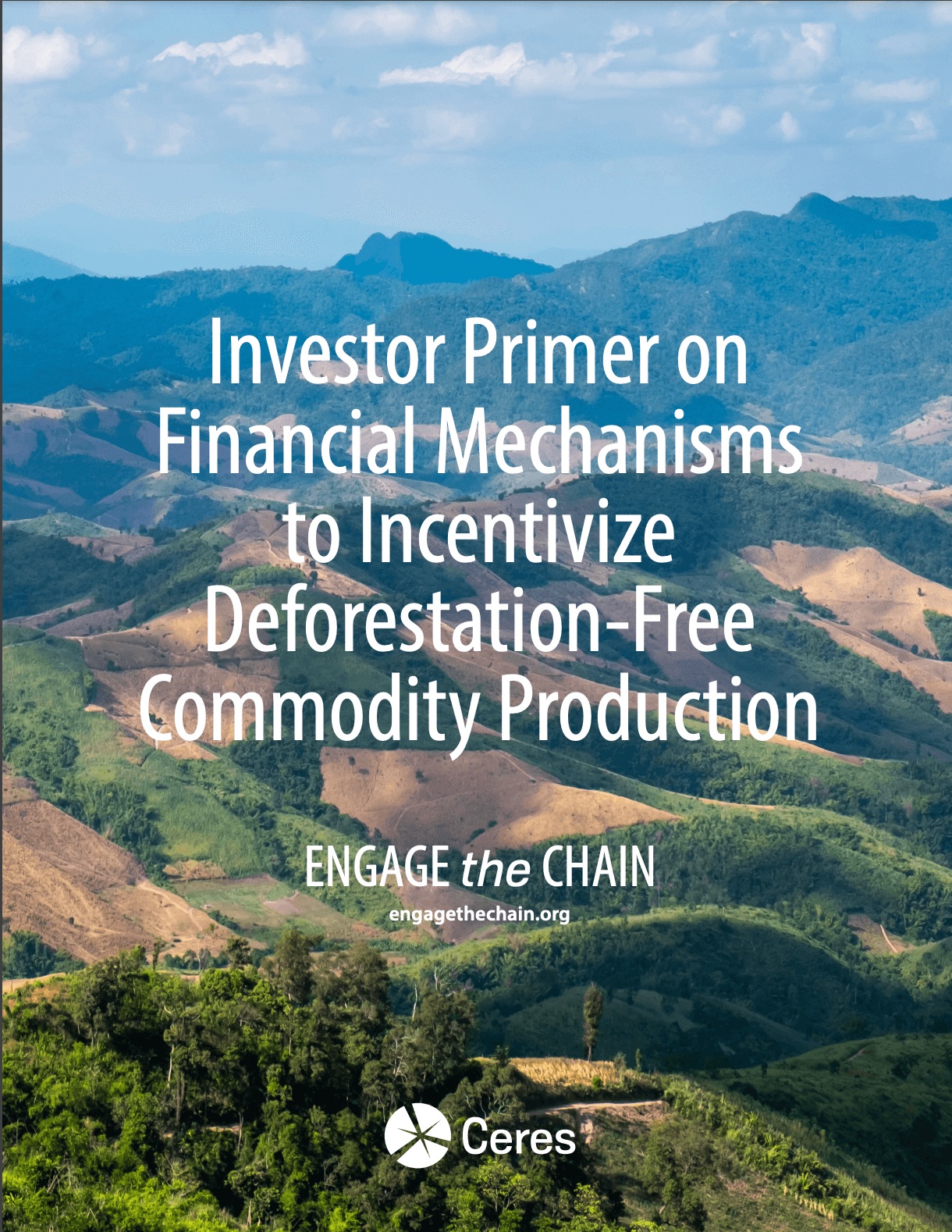Investor Primer on Financial Mechanisms to Incentivize Deforestation-Free Commodity Production
Detalles
Over the past decade, nearly 500 companies have made commitments to eliminate deforestation from their agricultural supply chains as part of their broader climate goals to reduce risks and improve their reputation among consumers and investors. These business commitments come from players across the supply chain, from commodity traders to consumer goods manufacturers. However, while corporate demand for deforestation-free products is growing and investors are increasingly calling for accelerated action to halt deforestation, rates of agricultural expansion continue to rise. Since 2014, when leaders from around the world joined the New York Declaration on Forests, the loss of primary tropical forests has increased by 44%. As long as deforestation continues to infiltrate commodity markets, companies will face a wide range of risks associated with deforestation and its role as a driver of climate change. |
Recursos relacionados

TNFD draft sector guidance
TNFD is developing sectoral guidelines to provide guidance on the implementation of the LEAP approach, including specific metrics for the…
Update of the IUCN Red List of Endangered Species
38% of the world's trees are at risk of extinction according to the first Global Tree Assessment, published in the…


